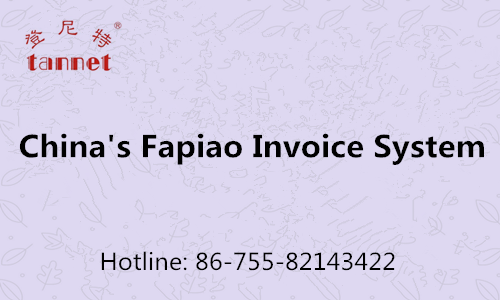China’s fapiao invoice system is distinctive and Chinese-featured. A fapiao is a legal receipt that serves as proof of purchase for goods and services. The larger fapiao invoice system, however, is an essential component of China’s tax law, and compliance for businesses. China’s tax authorities require businesses to use fapiao to compel companies to pay tax in advance on their future sales. In this way, fapiao serve as a paper warranty against tax evasion, unlike other countries where invoices serve as a tax receipt.
There are two major categories of fapiao: general fapiao and special value-added tax (VAT) fapiao. The main difference between the two is that the latter can be used for tax deduction purposes, while the former cannot. Details are listed below.
1. General VAT fapiao
General VAT fapiao are used as evidence of payment where special VAT fapiao do not apply. There are two formats of general VAT fapiao, the normal general VAT invoices and the roll invoices. Although taxpayers can choose either type at their own will, the latter are mainly used in the life services industry.
The most common taxpayers for general VAT fapiao are generally:
(1) Business tax taxpayers;
(2) VAT small-scale taxpayers; and,
(3) VAT general taxpayers who are not allowed to issue special VAT invoices (such as general commercial taxpayers who retail cigarettes, alcohol, food, clothing, shoes and hats, makeup, and other consumer goods).
Enterprises or individuals who are not able to issue special VAT fapiao should issue general fapiao when selling commodities, providing taxable services, or conducting other operating activities.

2. Special VAT fapiao
Special VAT fapiao are issued by general taxpayers to customers when selling commodities or providing taxable services. Special VAT fapiao cannot be issued for sales of tax-free commodities.
A special VAT Invoice comprises of the following three basic copies:
(1) Bookkeeping copy: a bookkeeping voucher for the issuer;
(2) Deduction copy: a tax deduction voucher for the customer who made the purchase; and,
(3) Invoice copy: a bookkeeping voucher for the customer.
The local tax bureau determines the status after the taxpayer submits a maximum invoice amount application. For maximum invoice applications that amount to over RMB 100,000, authorities conduct a site inspection for the applicant.
Foreign business people and companies should take the time to understand the fapiao system: individuals need fapiao to reclaim business expenses, while companies must record all business transactions on a fapiao. A solid understanding of the system is therefore a critical requirement.
Contact Us
If you have further queries, don’t hesitate to contact Tannet anytime, anywhere by simply visiting Tannet’s website english.tannet-group.com, or calling Hong Kong hotline at 852-27826888 or China hotline at 86-755-82143422 or 86-755-82143181 or emailing to tannet-solution@hotmail.com. You are also welcome to visit our office situated in 16/F, Taiyangdao Bldg 2020, Dongmen South Rd, Luohu, Shenzhen, China.
Previous:China Accounting Standards Introduction
Next:Labor Cost Comparison in China